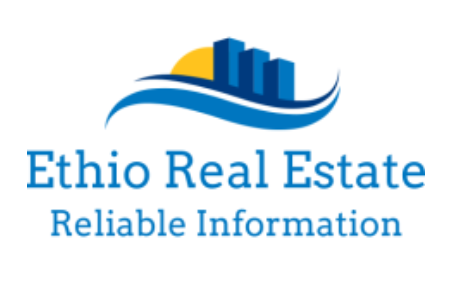Many Ethiopians would tell you that real estate is one area of investment that never disappoints. Despite the occasional dip in price due to various economic and security challenges, long term, real estate prices have always gone up, sometimes upwards of 50% year over year.
For foreign investors, expats and diaspora community, the question is how profitable is Ethiopian real estate investment as compared to neighboring countries and regions. After all, it is one thing to get large appreciation in terms of the Birr, but another when considering inflation and devaluation.
Real estate investing is a relatively new sector in Ethiopia and didn’t go mainstream until the passing of the Condominium Law of 2005 which allowed buildings to be subdivided into units of apartments and condominiums.
Since then many real estate companies popped up including veterans such as Ayat Real Estate, Sunshine Group and Country Club Developers. Although early clients and buyers of these developers did well, a closer look reveals that the investments are not as profitable as they seem. On the other hand, someone that bought a property at the right location and at the right time, may have done much better.
Assefa is a diaspora Ethiopian that bought a house with Country Club Developers in Legetafo, Oromia which is located just outside of Addis Ababa. This gated community of over 2,000 high-end villas is one of the most successful real estate project in the country. In 2014 Assefa bought a 1,000 sqm villa with 4 bedrooms, and 4 bath with top of the line finishings for about 6M Birr (which at the time was worth $500,000 USD). Nine years later he sold it for 40M Birr. On the surface, it sounds like he made a killing but when you consider the diminished purchasing power of the Birr, he actually lost money. The 40M is equivalent to $400,000 USD in terms of the current purchasing power of the Birr.
Mamitu returned to Ethiopia in 2019 from spending the last two decades in the UK. One of the first thing she did was to buy a three bedroom apartment in the Bole area of Addis Ababa. She bought an already completed apartment unit for $150,000 USD. It has been rented for around $2,000 a month. Recently her property was assessed to be worth around $250,000 USD. Not only she is getting a 16% yield on rent, but also has so far got a 70% appreciation in just 4 years.
Yonas is a successful Ethiopian businessman who decided to invest in Dubai and Nairobi instead of his homeland. In 2021 he purchased a two bedroom apartment from EMAAR, a leading Emirati developer for 750,000 Dhs ($205,030 USD). His unit is now worth over one Million Dhs ($273,373 USD) and rents for 60,000 Dhs ($16,400 USD) a year giving him a yield of 8% on his original investment. Yonas also purchased a three bedroom unit in an upscale neighborhood of Nairobi for $200,000 USD which is renting for $18,000 USD per year yielding 9% per year. Yonas realizes that he could have made a higher yield by investing in his homeland, however he doesn’t regret his decision as it was based on a need to diversify.
The above examples seem to be inline with local real estate statistics. Regionally real estate investors can expect to earn between 5-12% percent a year. In Ethiopia investors can expect up to 15% annual yield depending on location and timing of purchase.
Therefore we can conclude that real estate investment in Ethiopia is lucrative and is likely to continue being lucrative due to many factors including lack of alternative investments for locals, increasing population pressure especially in the capital Addis Ababa and the opening up of the financial sector, which would provide increased access to mortgage financing.

Thank you for this informative article. Good case studies presented!
In addition to population pressure in Addis, the Diaspora continue to invest in real estate in the country.
Whether they were originally from Addis or from other smaller rural towns and villages, the Diaspora mostly choose to invest in Addis, rather than their own home towns or villages.
In addition, successful middle class Ethiopians from other parts of the country migrate to Addis for political, business opportunities, and safety reasons and continue to scoop up properties across the city.
Yes, since there is no stock market or REIT to invest in, Ethiopians rush to park their cash in properties. This has worked deliciously for many.
These are some of the reasons why the real estate market in Addis is going through the roof.
Looking forward, I think the Ethiopian real estate market will grow exponentially if conventional mortgages become widely available.
At the moment, sadly, you can’t find a bank willing to give you a mortgage with even a 30% down payment. Some developers may refer buyers to banks for mortgages (I guess they get referral fees).
Cheers